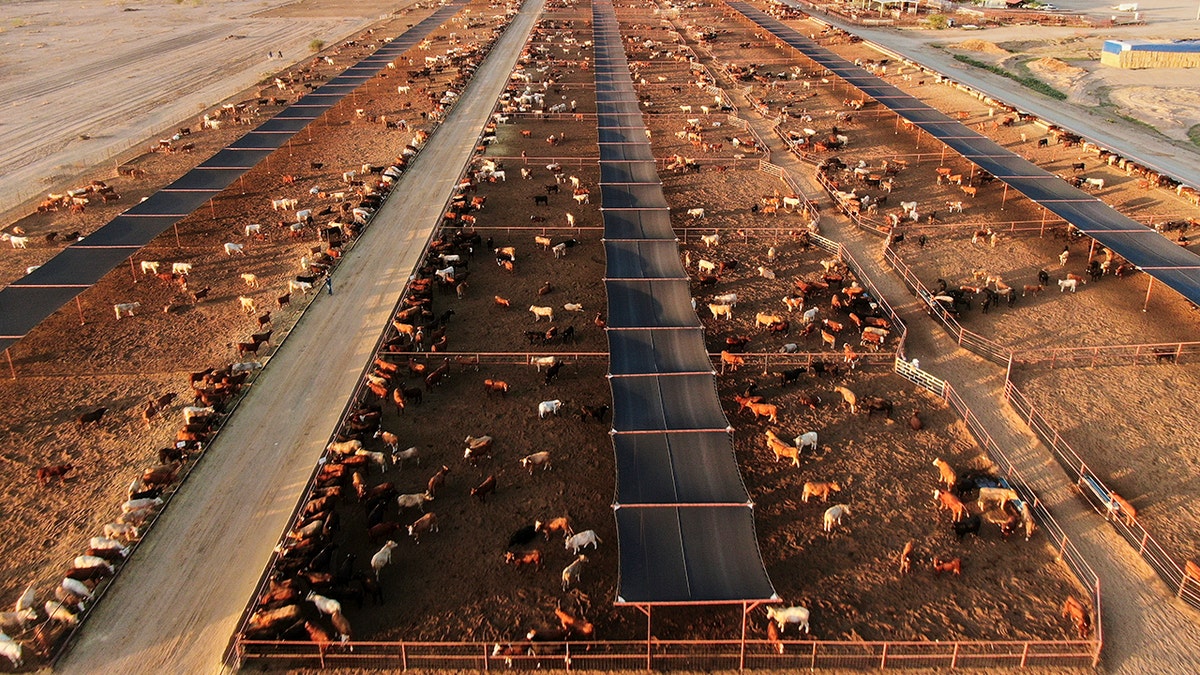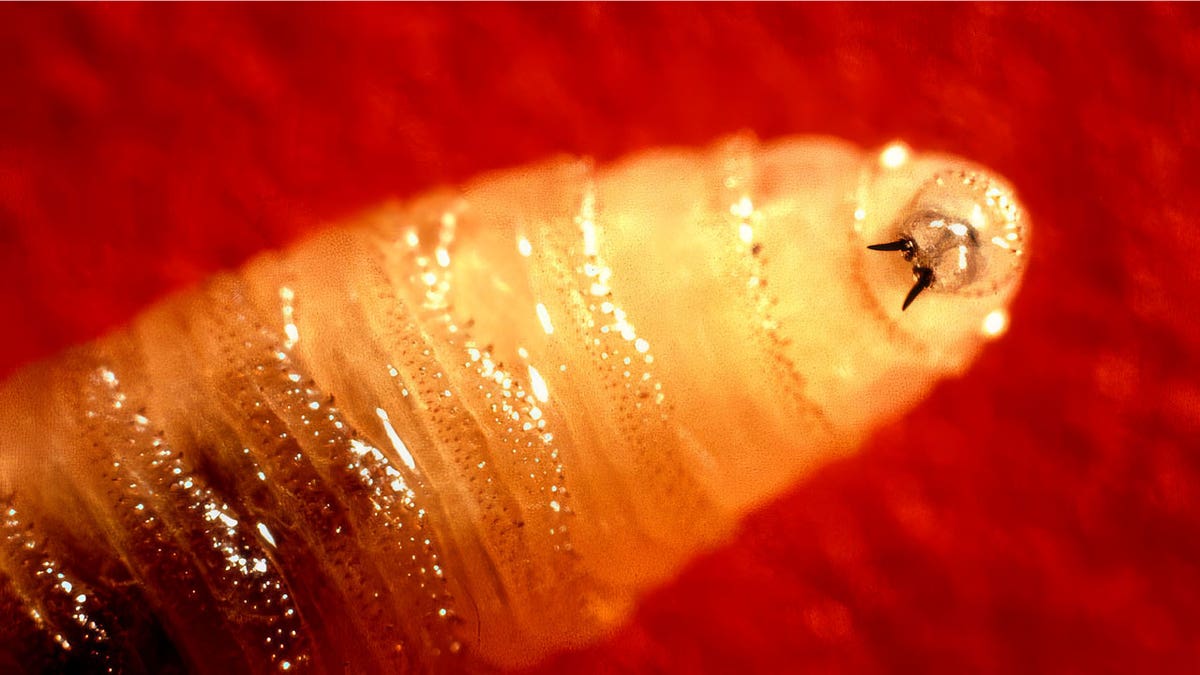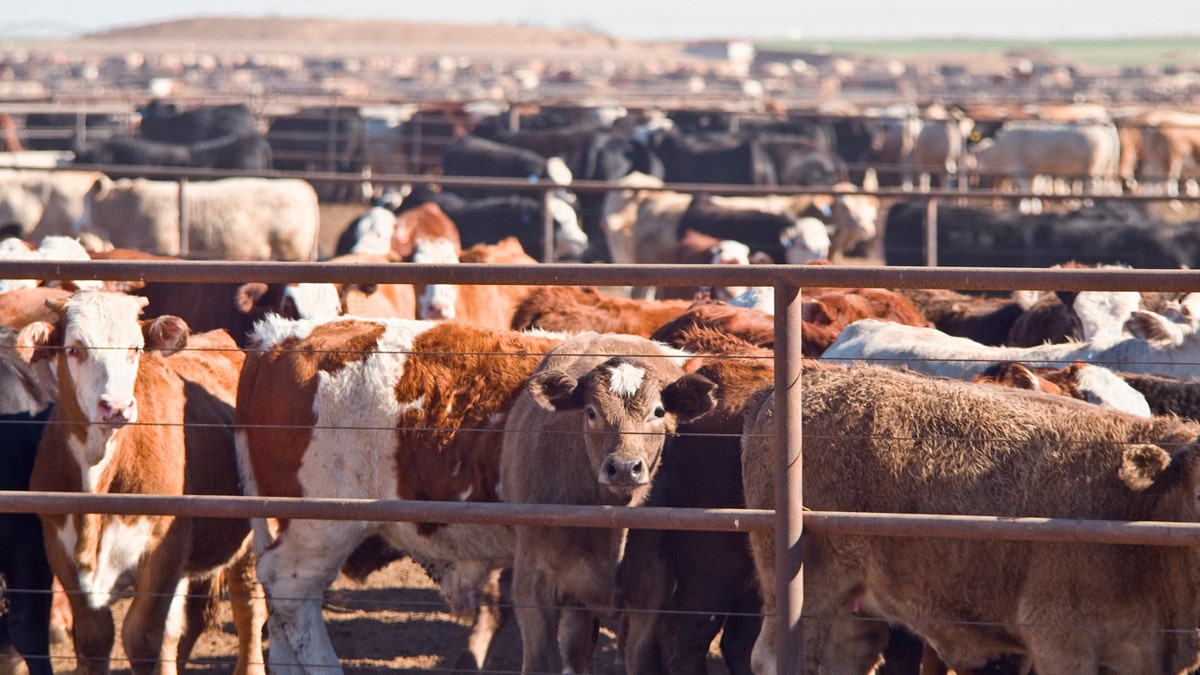

Mexico activated emergency controls Monday after detecting a new case of New World screwworm in cattle in the northern border state of Nuevo Leon, the closest case to the U.S. border since the outbreak began last year.
The animal, found in the town of Sabinas Hidalgo, came from the Gulf state of Veracruz, Mexico's National Health for Food Safety and Food Quality Service said.
The last case was reported July 9 in Veracruz, prompting Washington to suspend imports of live Mexican cattle.
The parasite, a larva of the Cochliomyia hominivorax fly, attacks warm-blooded animals, including humans. Mexico has reported more than 500 active cases in cattle across southern states.
The block on cattle imports has spelled trouble for Mexico's government, which has already been busy trying to offset the brunt of U.S. President Donald Trump's tariff threats this year.

The U.S. border is closed to Mexican cattle imports over screwworm concerns. (Fernando Llano/AP Photo)
The government and ranchers have sought to get the ban lifted.
If it stays in place through the year, Mexico's ranching federation estimates losses up to $400 million.
"It is extremely concerning for the American cattle industry that New World screwworm has moved so far north in Mexico and now is just 70 miles from the border," Colin Woodall, CEO of the National Cattlemen's Beef Association, said in a statement.
"The speed that screwworm has moved through Mexico is a reminder that this pest poses a critical and urgent threat to America's cattle producers."

Cochliomyia hominovorax is the primary screwworm fly in the New World. Larvae are obligate parasites of living flesh in humans and other mammals. (USDA)
Mollie Engelhart, a former vegan restaurateur who is now a Texas rancher, told Fox News Digital she's "very concerned" about the screwworm situation.
"I believe that the most important thing for our cattle industry right now is to bring our herd size up and the diversification of our processing for major packers," Engelhart said, adding that she believes there is a greater need for local food processing than ever before.

A Texas rancher said she believes increasing the herd size is an important step for the cattle industry. (iStock)
Mexico's Agriculture Secretary Julio Berdegué said in a post on X that Mexico is "controlling the isolated case of screwworm in Nuevo Leon," under measures to fight the pest agreed with the U.S. in August.
U.S. Agriculture Secretary Brooke Rollins said Washington will take "decisive measures to protect our borders, even in the absence of cooperation," and said imports of Mexican cattle, bison and horses will remain suspended.
"We will not rely on Mexico to defend our industry, our food supply or our way of life," she said.
The Associated Press contributed reporting.
